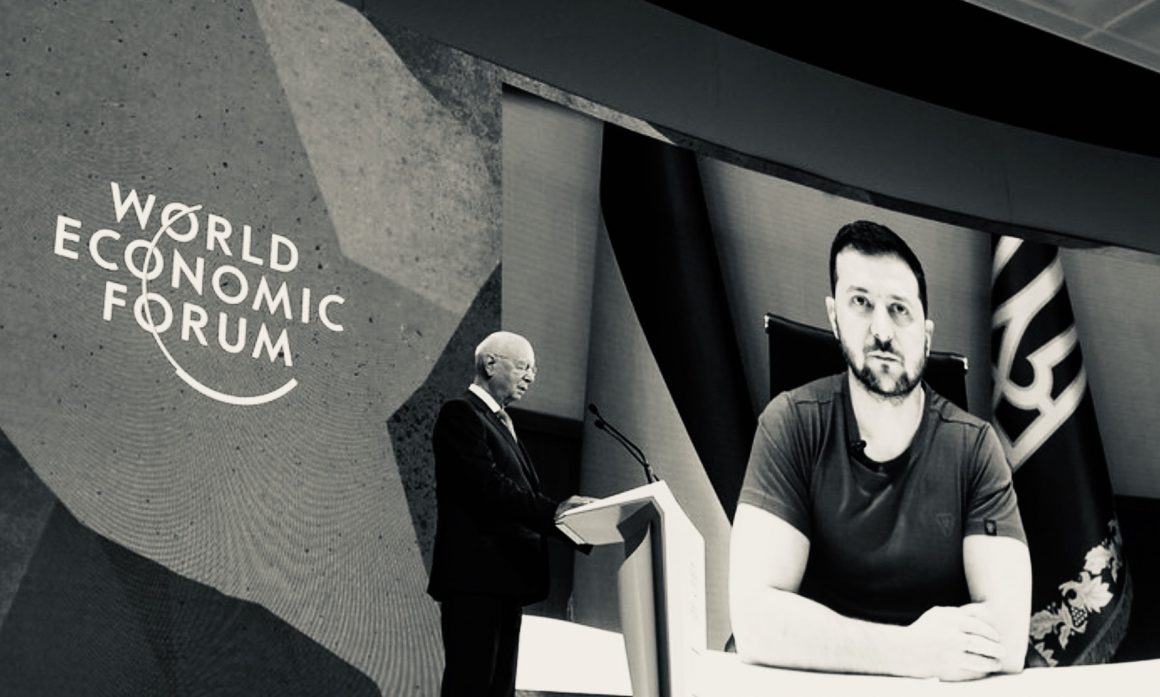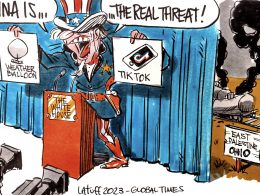Reformism is insidious because even when one is fully aware that the system they’re dealing with can’t be reformed, simply being a political actor provides one with massive material incentives to act like a reformist. To do what the system prefers, out of fear that if you’re too defiant then you’ll be cut off from access to the tools the system can give you. It’s a toxic relationship that these systems create with those who enter into them, while knowing change can’t truly come without getting rid of the system. Because the system is what they have to please in order to get what they need—or rather what they think they need—they end up fortifying the system.
That’s what we’ve seen with the types of socialists who’ve compromised their anti-imperialism for the sake of keeping favor either with the Democratic Party, or with the discourse spaces and organizations that are ideologically adjacent to the Democrats. The important part in this is that the actors I’m referring to know about the violence of the imperialist order, yet have still decided to do and say things which strengthen this order out of expediency. An example of this is Brian Becker. In this paragraph from his 2018 piece of writing From inter-imperialist war to global class war: Understanding distinct stages of imperialism, Becker makes an observation about the folly of compromising with imperialism. An observation that can be juxtaposed against what he’s said since then:
As just one sign of the Communist Party of the Soviet Union’s degeneration, the CPSU under the leadership of Mikhail Gorbachev formulated a foreign policy to end the Cold War based on an entirely mistaken conception of imperialism. Gorbachev and others in the leadership believed that tensions with the United States could be eliminated by allowing the reintegration of Eastern Europe back into the camp of imperialism. A sharp contraction of aid to national liberation movements would help the Soviet economy, and, the reasoning went, the United States would reciprocate and the world would become a peaceful place. As Washington prepared to begin a massive bombing war against Iraq, in the United Nations the Gorbachev leadership turned its back on a former ally, and capitulated to the military campaign.
Becker understands Marxist theory. He understands the reality that imperialism is not something which can be ended by trying to make peace with it, since imperialism is the way that capitalism can survive in its modern form. Becker has pointed to this same reality about imperialism being a stage of capitalism, rather than an optional policy, to also illustrate why Kautsky’s “imperialism is only a policy” stance was an unprincipled capitulation to the bourgeois state. So why, in an interview about the Ukraine conflict from last year with Abby Martin, would Becker say the following? If you’re familiar enough with the subject matter to see why the things he’s quoted as saying in this People’s Dispatch summary are not true, you’ll see why I say he’s engaging in that kind of compromise:
Russian president Vladmir Putin, in an address on February 21, gave several justifications for the invasion of Ukraine. One key reason was the “denazification” of Ukraine, in which, in 2014, fascists seized power. However, as Martin warns, “I think it’s important to not reflexively take the PR of a huge capitalist country.” The influence of the fascist elements in the Ukrainian state has waned considerably. Becker states, “Ukraine in the main is not Nazi…in the 2019 parliamentary elections, the political forces who formed a united right bloc, which are the fascist forces, they got about 2.1% of the vote.” As Becker explained, the true purpose of the Russian invasion is for Russia to signal to the US and NATO that “the appeasement has ended” in terms of allowing NATO influence to inch closer and closer to Russian territory. However, while these are valid security concerns, both Martin and Becker agree that the invasion should be condemned. The invasion is a disaster to both the Ukrainian and Russian population, who under the Soviet Union, were “one people…working together against fascism”.
Becker is respected by many, including by plenty of genuine anti-imperialists, due to the relative effectiveness of his organizing project. So for these types of people who respect him, it’s important to ask upon seeing these statements: who does he sound like here? What does his rhetoric remind you of? Because he’s using the exact same argument used by the NATO apologists who justify their stance via lying by omission about the nature of the Ukrainian state. These apologists focus exclusively on how many parliamentary seats and votes the fascists have, while leaving out the other parts of the story. The parts that prove Ukraine is a Nazi state.
To find the evidence of this, don’t look to Ukraine’s parliament. Look to the country’s national security state, the unelected officials who can assassinate any president that doesn’t do what their Washington puppeteers want Ukraine to do. These officials are why Zelensky has made deals with the Nazi militias, even though he’s a Jewish descendant of Holocaust survivors. They’re why he continued and escalated the war against Ukraine’s breakaway areas, even though he initially said he would end this war. If Zelensky were to have become disobedient, this national security state would simply have replaced him with a figurehead who complies.
The idea that this ruling national security state is a Nazi one isn’t even a conspiracy theory. It’s simply the reasonable conclusion upon observing the policies it’s facilitated. While reading this description of Ukraine’s actions by Ben Norton, it’s impossible to honestly say “no, those don’t sound like things a Nazi state would do”:
Following the U.S.-sponsored coup in Ukraine in 2014, neo-Nazi militias like the Azov regiment were officially incorporated into the National Guard, while the fascist Aidar Battalion became part of the Armed Forces. NATO member states have sent weapons to these Ukrainian neo-Nazis, and have even trained them. After Russia invaded, Ukraine’s National Guard posted a propaganda video on Twitter boasting of a neo-Nazi fighter from the Azov detachment greasing bullets with pig fat in order to kill Chechen Muslims, which the Ukrainian state institution dehumanized as “orcs.”…While the Ukrainian regime criminalizes socialist parties and hunts down leftists, in alliance with neo-Nazis, Western media pundits are heaping praise on Kiev. David Frum, a former speechwriter for U.S. President George W. Bush and editor of the centrist Atlantic magazine, insisted on Twitter that “Ukraine may be the first example in human history of a country that under the pressure of war is becoming *more* tolerant and *more* liberal.” Frum tweeted this mere hours before Ukraine banned socialist parties and seized control of all media outlets in the country.
To argue that the character and guiding ideology of Ukraine’s state haven’t shifted away from fascism since 2014, when the new coup regime’s officials openly called to forcibly relocate the Russian speakers in the Donbass, you don’t have to look hard for evidence. You only need to point to the fascist things Kiev is still saying and doing every day. If anything, the state’s character has become even more fascist as the years have gone by, and Ukraine’s democratic freedoms have been progressively dismantled.
The question this begs is: why has Becker disputed this reality? It can’t be that he hasn’t come across this information. Norton is someone who Becker has closely partnered with as a political actor, they’ve had long interviews together where they’ve talked about the Ukraine conflict. This kind of reporting on Ukrainian fascism from Norton and others is something that frequently comes up in the circles Becker frequents. So why has he portrayed Ukraine in a way that his collaborator Norton would never portray it as, given that Norton has written the things above? The answer can be found by examining the ideological strain that Becker and Norton share, despite Norton being willing to tell the truth about Ukraine.
The stance which Becker and Norton share on Ukraine is that Russia’s Operation Z wasn’t the right decision. They don’t argue that Russia is imperialist, in fact they’ve taken the time to repudiate that argument in detail. Which separates them from the ultra-leftists on that particular issue, while still making them partially aligned with the Democratic Party on geopolitics, enough that Becker has been willing to downplay the influence of Banderism. The reason they say Russia was wrong for taking this action is that they and the others who share their stance have invested themselves in a certain idea. The idea that to succeed, socialists must exclusively try to appeal to those on the left side of the political spectrum.
When you argue that it’s wrong to stop a threat of ethnic cleansing by a modern fascist state, and due to your socialist orientation are at least aware on some level that this ethnic cleansing threat is real, there are arguments other than “there is no ethnic cleansing” which you need to rely on to rationalize taking this stance. For Becker, this argument is that the humanitarian cost of the conflict has been too great to make Russia’s intervention worth it, while for Norton, this argument is that Z has given the imperialists an opportunity to unify Europe behind NATO.
There are counter-arguments to both of these, respectively: are you sure that the costs of war surpass the need to save these communities from what would have been a genocidal invasion by Kiev? And are you sure that the ways NATO has been helped by this conflict represent a net gain for imperialism, when put in the context of how Z has accelerated the transition to multipolarity? To the latter point, Becker has said that multipolarity is not the end goal of socialists. But that’s him telling the truth for the wrong reason. Multipolarity is an indispensable step in the progression towards global workers victory, because it’s what’s necessary for ending U.S. hegemony. To side against multipolarity is in effect to side with the notion of combating imperialism on a meaningful level.
Becker’s answer to this reality of Z’s overall negative effect on U.S. hegemony is that imperialism can be fought by pressuring America’s government into giving up its militarism. But the way he’s trying to do this doesn’t have hope for success. As Marxists Speak Out has assessed about the fundamentally flawed nature of his practice: “We do not want war, but nor are we pacifists. We must break with the politics of pacifism and Russophobia. The organizers and leaders of the March 18th protests [organized by Becker’s ANSWER] in the USA for example tried to isolate and censure the organizations that support a Russian victory over imperialism in the war and instead aimed to pressure the imperialist Democratic Party that is waging the war. Such politics only cowers in the face of public opinion and serves imperialist governance. No progress will be made appealing to either of the vicious imperialist Republican or Democrat wings of the US ruling class.” The way we in the core can truly affect the conflict is by combating imperialism’s psyops, and by doing so in a way which isn’t afraid to recognize the Ukrainian state’s fascist nature. As well as in a way that’s not afraid to do what Norton also doesn’t want to do, despite his reporting on Banderism: build an anti-imperialist coalition that doesn’t compromise its stances to appease those on the “left,” but rather appeals to a broader demographic.
Trying to solely appeal to the left is a counterproductive strategy because what we call the “left” has long lacked a fundamentally anti-imperialist character. The left’s co-optation became complete many decades ago, therefore if you’re not actively antagonizing all the left’s opportunistic elements, you’re letting yourself be corrupted by them to some capacity. The most vocal parts of the left are the “New Left,” the element that came to prominence after McCarthyism destroyed the communist movement. The New Left remains determined to minimize the importance of class, as Parenti pointed out it does, and this obfuscation also applies to the importance of fighting U.S. hegemony.
Even as Becker and Norton counter those among these opportunistic leftists who claim the new cold war is an “inter-imperialist” conflict, they still compromise their anti-imperialism to be able to appeal to more of these kinds of leftists. Because even among the leftists and liberals who aren’t advanced enough in their rhetoric to be saying things like “inter-imperialist war,” the trait they mostly share is being anti-Russian. This is because Russiagate, the psyop designed to make the left align with the neocon stance, succeeded at making the bulk of “the left” believe being pro-Russian is necessarily a reactionary position.
If you’re solely trying to bring in those who have this mindset, you’ll find yourself under pressure to distance yourself from the pro-Russia stance. Even when this stance is necessary for being consistently anti-fascist and anti-imperialist. What you become left with is a contradictory set of ideas, where you’re anti-NATO in theory while not fully anti-NATO in practice.
The consequence can be that you end up lashing out against those who take the consistent anti-imperialist stance, and thereby cross the boundary from merely being inconsistent to being an active hindrance to the antiwar cause. When the March 18th organizers attacked the Rage Against the War Machine rally, and by extension the permanent organizing coalition that it’s created, they didn’t just engage in sectarianism. They made explicit their opposition towards the type of practice that can make the anti-imperialist movement effective, which is RAWM’s building a front that goes beyond the left. When you’re dealing with the “left,” you need to be extremely careful, because many who identify with that label are obstinate pro-imperialists. And they inevitably will try to pressure you into compromising with them on that. The only way to break the antiwar movement free from the Democratic Party is by building a front that’s both organizationally and ideologically independent from it.
The argument that those within this strain can still use, the one which they hope can negate all the points I’ve made, is that if you break from these leftists then you’re necessarily going to aid the reactionaries. This is what plenty of those involved in Becker’s project believe, this is what those within the social media audience Norton has cultivated overwhelmingly believe. Their essential argument is that if you don’t do everything you’re supposed to do in order to be accepted into the insular “left” space, then you’re automatically aligned with fascism. It’s a powerful argument, because when a mob is shouting it at you or you see that mob shouting it at others, your impulse is to shrink and do what they say. But whether you give in depends on what your priorities are.
Do you want to please these people who don’t have the interests of anti-imperialism and the class struggle in mind? Or do you want to be principled? The truth doesn’t care about what’s convenient. It doesn’t care if there are people siding against the truth who appear to be the ones you should side with. If these people don’t offer the truth, they don’t actually have the solution, and don’t deserve your loyalty. They have a story that looks convincing if you’re newer to the movement, but that they’re using to lead you down an ineffectual path.
————————————————————————
If you appreciate my work, I hope you become a one-time or regular donor to my Patreon account. Like most of us, I’m feeling the economic pinch during late-stage capitalism, and I need money to keep fighting for a new system that works for all of us. Go to my Patreon here.








